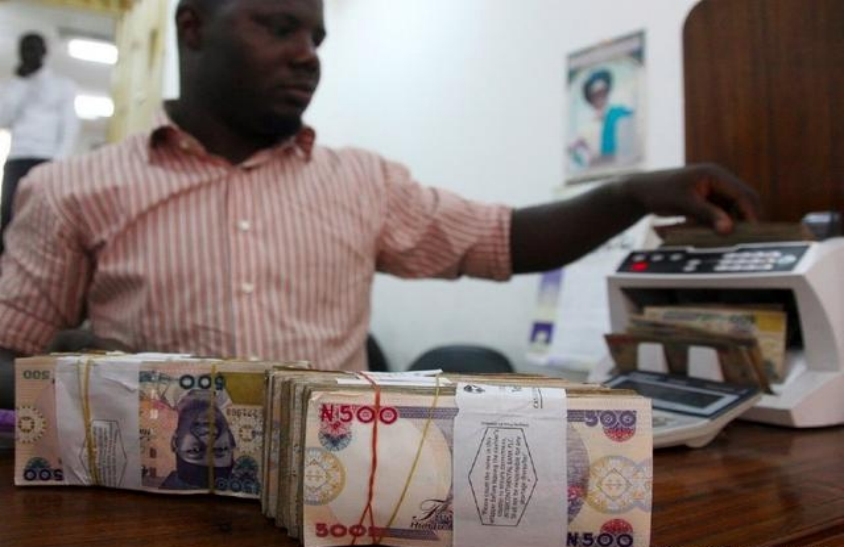
President Tinubu of Nigeria recently presented to the National Assembly a total of N47.9 trillion budget for 2025, which is entitled "Recovery Budget: Secure Peace, Rebuild Prosperity". The move marks a New Year in which the Nigerian government will take a series of economic measures aimed at addressing the multiple challenges of economic growth, human capital development, poverty reduction and insecurity.
First, in terms of the size of the budget, the total budget of 47.9 trillion naira is undoubtedly a huge number. However, behind this figure reflects the urgent needs and severe challenges of the Nigerian government for the country's economic development. In the context of the complex and volatile global economic situation, Nigeria, as one of the largest economies in Africa, is facing multiple problems such as slowing economic growth, high inflation and rising unemployment. Therefore, this budget can be seen as an attempt by the Nigerian government to stimulate the economy and promote growth through fiscal means.
However, the feasibility of the budget is an issue that cannot be ignored. According to President Tinubu's presentation, the 2025 budget aims to fund revenue of N34.82 trillion, including N15.81 trillion for debt servicing. This means that the government needs to raise enough money from various sources to cover the budget deficit. However, in the current global economic situation is not good, investor confidence is low, the Nigerian government can successfully raise the required funds, there is still a lot of uncertainty.
In addition, the efficiency of budget implementation is also a key factor. Over the past few years, the Nigerian government has repeatedly been criticized for poor budget implementation and misappropriation of funds. Therefore, how to ensure that the budget funds are used effectively according to the plan to avoid waste and corruption will be a major challenge for the Nigerian government.
In terms of budget priorities, areas such as defence and security, infrastructure, health and education were highlighted. This arrangement reflects the great importance the Nigerian government attaches to national security and people's well-being. However, from an economic point of view, whether the investment in these areas can bring sufficient return is also a question worth pondering.
In terms of defence and security, increased funding for the army, paramilitary and police forces will undoubtedly contribute to the security level of the country. However, such investment is often long-term and uncertain, and its economic benefits are difficult to measure directly. Therefore, with limited financial resources, how to balance the relationship between national security needs and economic development will be a question for the Nigerian government to consider carefully.
On infrastructure, President Tinubu proposed the Renewed Hope Infrastructure Development Fund and cited key projects such as the Lagos-Calabar Coastal Road and the Sokoto-Badagri Road. The implementation of these projects will help improve the transportation situation in Nigeria and promote regional economic development. However, infrastructure construction often requires a large amount of capital investment and a long-term time cycle, and its economic benefits also need a certain amount of time. Therefore, how to ensure the smooth implementation and effective operation of these projects will be another challenge for the Nigerian government to face.
In the areas of health and education, the budget investment will help to raise the level of human capital in Nigeria. However, investments in these areas are also long-term and uncertain. With limited financial resources, how to ensure that these investments can bring sufficient economic returns and social benefits is also an issue that the Nigerian government needs to seriously consider.
In addition to these priorities, the budget addresses the challenges of poverty reduction and insecurity. On poverty reduction, President Tinubu pledged to support farmers and ensure food security through funding and inputs. However, poverty reduction is a complex social issue that requires the joint efforts of the government, society and the market. Financial input alone cannot fundamentally solve the problem of poverty. Therefore, the Nigerian government needs to take more comprehensive and effective measures to promote the development of poverty reduction.
On the insecurity front, President Tinubu said he would increase funding for the army, paramilitary and police forces to ensure national security. However, the root causes of insecurity often lie in socio-economic imbalances and instability. Therefore, in addition to stepping up military investment, the Nigerian Government needs to take more comprehensive and in-depth measures to address the root causes of insecurity.
To sum up, the 2025 budget submitted by President Tinubu of Nigeria reflects the urgent needs and serious challenges of the Nigerian government for the country's economic development. However, there are certain problems and challenges in the feasibility of the budget, the efficiency of implementation and the choice of priorities. Therefore, the Nigerian government needs to take more comprehensive and effective measures to ensure the smooth implementation and efficient operation of the budget, while proactively addressing various economic challenges and risks. Only in this way can Nigeria achieve stable economic growth and sustainable social development in the New Year.

On January 4th local time, Trump warned India that if it does not limit its purchase of Russian oil, the United States will continue to raise tariffs on Indian products. Trump's latest warning sent shockwaves through the Indian financial market in just one day.
On January 4th local time, Trump warned India that if it do…
In October 2025, the US trade deficit narrowed unexpectedly…
According to the British media CoinJournal, recently, due t…
In January 2026, US President Trump once again set his sigh…
Europe is facing a crucial strategic choice: In the face of…
On New Year's Day 2026, BMW China announced a "systematic v…